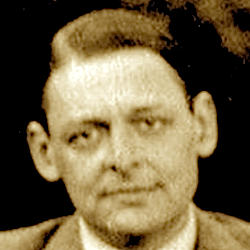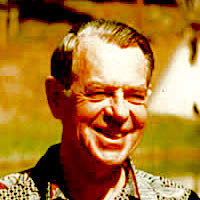

Tao Te Ching

T. S. Eliot
1888 – 1965 CE
T.S. Eliot, Thomas Stearns Eliot (1888-1965)
Literary and social critic, "one of the twentieth century's major poets,” publisher and playwright, Nobel Prize winner and “the poet of the modern symbolist-Metaphysical tradition;” T.S. Eliot wrote some of the best known English poems. Reversing the more common trend, he was more respected during his lifetime, less so after but still almost universally acknowledged as a pioneering and major influence on modern poetry. He emphasized insight and poetry arising from the unconscious mind. Often accused of anti-Semitism, he described himself as a "classicist in literature, royalist in politics, and anglo-catholic in religion".
Eras
Western
Post-Romantic Age (1850 – 2018 CE)Great Depression (1929 – 1941 CE)
Roaring Twenties (1920 – 1929 CE)
Chinese
Qing dynasty (1644 – 1912 CE)Generations
The Lost Generation (1883 – 1900 CE)Sources
Unlisted Sources
A dialog on dramatic poetry (1928)
After Strange Gods (1934)
Introduction, Pascal's Pensées (1931)
Milton (1947)
Murder in the athedral (1935)
Notes Toward the Definition of Culture, 1948
The Cocktail Party
The Four Quartets
Virgil and the Christian World (1951)
Quotes by T. S. Eliot (37 quotes)
“Success is relative. It is what we make of the mess we have made of things.”
Chapters:
2. The Wordless Teachings
Comments: Click to comment
“We shall not cease from exploration
And the end of all our exploring
Will be to arrive where we started
And know the place for the first time.”
from The Four Quartets
Chapters:
10. The Power of Goodness
Comments: Click to comment
“He had a mind so fine that no idea could violate it.”
Chapters:
18. The Sick Society
Comments: Click to comment
“For last year's words belong to last year's language. And next year's words await another voice.”
from Four Quartets
Chapters:
38. Fruit Over Flowers
Comments: Click to comment
“Humankind cannot bear very much reality.”
from Four Quartets
Comments: Click to comment
“Footfalls echo in the memory, down the passage we did not take, towards the door we never opened, into the rose garden.”
from Four Quartets
Comments: Click to comment
“The historical sense involves a perception, not only of the pastness of the past, but of its presence.”
from Four Quartets
Comments: Click to comment
“The only wisdom we can hope to acquire is the wisdom of humility.”
from Four Quartets
Chapters:
61. Lying Low
Comments: Click to comment
“We do not pass through the same door twice or return to the door through which we did not pass.”
Chapters:
41. Distilled Life
Comments: Click to comment
Chapters:
78. Water
Comments: Click to comment
“To do the useful thing, to say the courageous thing, to contemplate the beautiful thing: that is enough for one man's life.”
Chapters:
43. No Effort, No Trace
Comments: Click to comment
“Between the idea
And the reality
Between the motion
And the act
Falls the Shadow.”
Chapters:
45. Complete Perfection
Comments: Click to comment
“The butterfly that lives a day has lived eternity.”
Chapters:
49. No Set Mind
Comments: Click to comment
“We don't actually fear death, we fear that no one will notice our absence, that we will disappear without a trace.”
Chapters:
50. Claws and Swords
Comments: Click to comment
“Where is the wisdom we have lost in knowledge? Where is the knowledge we have lost in information?”
Chapters:
65. Simplicity: the Hidden Power of Goodness
Comments: Click to comment
“Most of the evil in this world is done by people with good intentions.”
Chapters:
67. Three Treasures
Comments: Click to comment
“We had the experience but missed the meaning. And approach to the meaning restores the experience in a different form.”
Chapters:
70. Inscrutable
Comments: Click to comment
“Distracted from distraction by distraction.”
Chapters:
72. Helpful Fear
Comments: Click to comment
“The journey, not the destination matters...”
Chapters:
81. Journey Without Goal
Comments: Click to comment
“I hold this book to be the most important expression which the present age has found; it is a book to which we are all indebted, and from which none of us can escape.”
Comments: Click to comment
“In the last few years, everything I'd done up to sixty or so has seemed very childish.”
Comments: Click to comment
“An immense gift for using words, an amazing curiosity and power of observation with his mind and with all his senses, the mask of the entertainer, and beyond that a queer gift of second sight, of transmitting messages from elsewhere, a gift so disconcerting when we are made aware of it that thenceforth we are never sure when it is not present: all this makes Kipling a writer impossible wholly to understand and quite impossible to belittle.”
Comments: Click to comment
“A man of the world among ascetics, and an ascetic among men of the world.”
Comments: Click to comment
“Radio is a medium of entertainment which permits millions of people to listen to the same joke at the same time, and yet remain lonesome”
Comments: Click to comment
“Culture is the one thing that we cannot deliberately aim at. It is the product of a variety of more or less harmonious activities, each pursued for its own sake.”
from Notes Toward the Definition of Culture, 1948
Comments: Click to comment
“Human kind cannot bear much reality.”
from Four Quartets
Comments: Click to comment
“[The Great Gatsby] seems to me to be the first step that American fiction has taken since Henry James”
Comments: Click to comment
“We cannot—in literature any more than in the rest of life—live in a perpetual state of revolution.”
from Milton (1947)
Comments: Click to comment
“in the sense in which a poet is a philosopher... Virgil is the greatest philosopher of ancient Rome... among all authors of classical antiquity, one for whom the world made sense, for whom it had order and dignity, and for whom, as for no one before his time except the Hebrew prophets, history had meaning... he saw clearly both sides of every question—the case for the loser as well as the case for the winner.
T. S. Eliot, "”
from Virgil and the Christian World (1951)
Comments: Click to comment
“[Aeneas] is the symbol of Rome; and, as Aeneas is to Rome, so is ancient Rome to Europe. The Roman Empire and the Latin language were not any empire and any language, but an empire and a language with a unique destiny in relation to ourselves...”
from Virgil and the Christian World (1951)
Comments: Click to comment
“No honest poet can ever feel quite sure of the permanent value of what he has written: he may have wasted his time and messed up his life for nothing.”
Comments: Click to comment
“We die to each other daily. What we know of other people is only our memory of the moments during which we knew them. And they have changed since then. To pretend that they and we are the same is a useful and convenient social convention which must sometimes be broken. We must also remember that at every meeting we are meeting a stranger.”
from The Cocktail Party
Comments: Click to comment
“What is still more important [than cultural homogeneity] is unity of religious background, and reasons of race and religion combine to make any large number of free-thinking Jews undesirable.”
from After Strange Gods (1934)
Comments: Click to comment
“The Civil War is not ended: I question whether any serious civil war ever does end.”
from Milton (1947)
Comments: Click to comment
“The last temptation is the greatest treason: to do the right deed for the wrong reason.”
from Murder in the athedral (1935)
Comments: Click to comment
“The majority of mankind is lazy-minded, incurious, absorbed in vanities, and tepid in emotion, and is therefore incapable of either much doubt or much faith.”
from Introduction, Pascal's Pensées (1931)
Comments: Click to comment
“We know too much, and are convinced of too little. Our literature is a substitute for religion, and so is our religion.”
from A dialog on dramatic poetry (1928)
Comments: Click to comment
Quotes about T. S. Eliot (1 quotes)

“What T. S. Elliot meant in his poem, The Waste Land... a land where everybody is living an inauthentic life, doing as other people do, doing as you're told, with not courage for your own life. That is the wasteland.”
Comments: Click to comment
Comments (0)